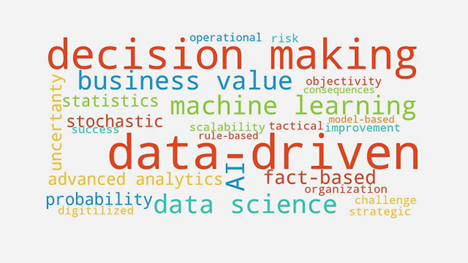You can’t control what you can’t measure
Andrew Grove the former CEO of Intel was known for his emphasis on data-driven decision-making to guide management practices. The quote “You can’t control what you can’t measure” is often attributed to Peter Drucker, a renowned management consultant, educator, and author. The essence of the quote underscores the importance of measurement and metrics in the context of management and control. The idea is that if you want to manage or control a process, aspect of business, or any system, you first need to be able to measure and quantify it. Without clear metrics, it becomes challenging to understand, analyze, and improve upon the elements that contribute to the success or efficiency of a particular endeavor.
The practice applies to patent portfolio management. The costs associated with developing and maintaining a patent portfolio are significant – often in the tens and hundreds of thousands of dollars. It is imperative for organizations to manage their patent portfolio to ensure that they align with business goals and provide a positive return on investment. Company executives need to make strategic decisions based on the value and relevance of their patents in the marketplace. Without metrics, decision making is difficult and often results in wasted money and opportunity.
A situation we encounter time and again involve startups and small and medium enterprises (SME). The management of a patent portfolio is usually off loaded to third party organizations with expertise in intellectual property (IP). The method is ubiquitously costly since the third parties are incentivized by billable hours, are paid up front and are not accountable whether a granted patent has value or not. Many IP organizations continually promote “strategies” for startups and SMEs. Sadly, owners often find out too late that their patents are worthless or legally handicapped while “patently” disclosing their novel invention/s to potential competitors.
Overcoming hurdles to AI adoption
Sophisticated artificial intelligence is making it easier to manage patent portfolios and reduce costs. Pelent is an AI system designed specifically for patents helping executives and portfolio managers make decisions and produce valuable patent portfolios. We invented a way to analyze patents using machine processing combined with a knowledge database of stemming from thousands of lawyers, patent experts, subject matter experts and valuable patents. Results are objective and data driven. The system analyzes and measures each patent within a given portfolio identifying strengths, weaknesses, and opportunities for improvement. Further a company’s portfolio can be benchmarked against competitor patents or an entire corpus of patents within a technology or marker segment.

Wrapping Up
Clients reach out to us with varying needs including portfolio assessment, managing renewal fees, or determining the likelihood that a portfolio can be successfully licensed or sold. We universally recommend a Portfolio Checkup as a first step. The cost is comparatively low, typically $500 to $1,500 depending on the number of patents. Results are generated quickly, are to easy to understand and actionable. Our Quickview analyzer provides an overall portfolio snapshot including Patent Rating metrics and a ‘floorplan’ visualization. Occasionally we find valuable portfolios, clients and their stakeholders like these. For others, the results are often not overwhelmingly positive. However, most of our clients are inherently creative, passionate about inventing and appreciate learning how to improve their patenting practices and patent value – which ultimately drives customer satisfaction and a win-win for Pelent AI and our clients.